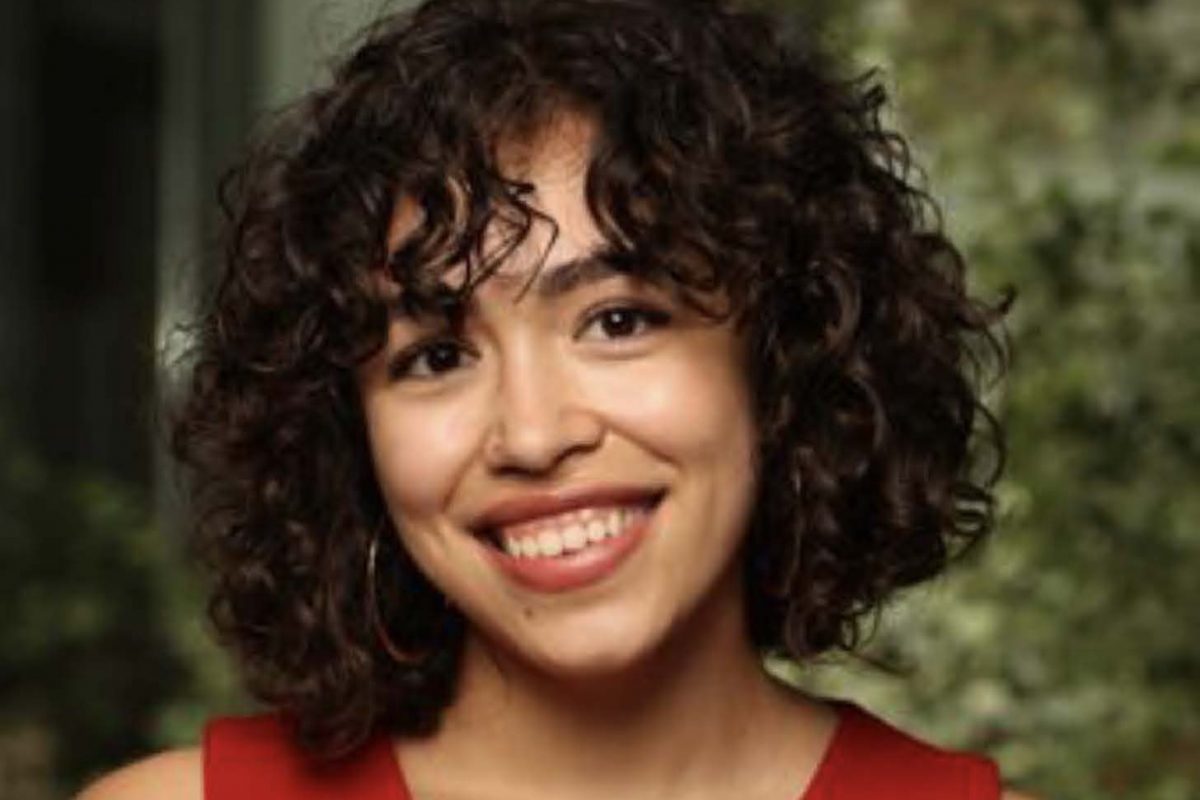Julieta Suárez Calderón, a Liberal Arts graduate with a double major in Women’s and Gender Studies and Race, Indigeneity, and Migration, has received the 2022 Randy Diehl Prize in Liberal Arts.
The $18,000 award, now in its seventh year, was established by donors to support a graduating liberal arts senior who is committing the year after graduation to effect positive change in the world by working for a nonprofit organization, working for a for-profit organization that benefits others, or creating a new nonprofit.
“The intent behind this gift is to encourage liberal arts graduates to use their considerable skills in communication and understanding of other cultures, histories, philosophies, and literature to effect a positive change in the world,” said the prize’s founding donors.
Julieta’s commitment to effecting positive change in the world is deeply personal. As the daughter of Mexican immigrants, she has jumped head-first into initiatives on campus that advance social justice, promote greater equity, and celebrate racial and cultural diversity. She will spend the next year working with the immigration policy and advocacy team at the Texas Children’s Defense Fund.
As an undergraduate, Julieta participated in organizations and societies such as Students for Equity and Diversity (SED) and the Multicultural Leadership Institute. She was a Dedman Distinguished Scholar. She also co-founded the Latinx Honors Students Association and spent the summer of 2021 working for the Portuguese Refugee Council in Lisbon. Her accolades are too many to list, but her earnest commitment to help the most vulnerable in society is infectious and uplifting.
Johnny Holden: What does the Diehl Prize mean to you?
Julieta Suárez Calderón: I’m beyond honored. I’m humbled and so grateful. I decided about a year ago that after my undergraduate degree I didn’t want to pursue more higher education right away. That said, it’s important to me that I work in a field where I can contribute to society in a way that is both meaningful and ethical. I don’t ever want to compromise my values.
Unfortunately, that usually means taking a low-paying job. I don’t have to tell you that Austin is an expensive city. The Randy Diehl prize allows me to pursue exactly what I want to do without having to compromise. I have been passionate about immigration work for a long time, so to get this kind of recognition reminds me to trust in myself and continue doing what I’m doing.
What are you most excited about for this next year?
That right after graduation I get to support families in need. But it’s much more than that. I’m excited to help empower people. The idea is to not have them be dependent on a nonprofit, but to help them transition into independent living by giving them agency over their own lives. They could be refugees or separated families with some members in detention; every situation is different but often people’s needs are the same.
What are you most nervous about?
It’s very easy to get comfortable as a student. UT Austin has always been a secure place for me. My education has been so central to my life for so long now it’s hard to shift focus away from school. I feel like a big part of my identity is being a good student and whatever that meant to other people. I’m a little nervous about the transition out of this comfort zone.
What has studying the liberal arts taught you?
It has been an education focused on interdisciplinary approaches and critical thinking. The interactions you have and the friends you make at university are also really important.
Liberal Arts students learn to analyze, connect their ideas, and communicate about them effectively. Those are skills that we take for granted but that prepare us to better engage with people and to apply our learning in a very specific way.
We are encouraged to think more creatively and independently than in many other schools. I work with issues that are rooted in community, in culture, and in politics. In order to bridge all three, I need the kinds of skills one can only gain from a liberal arts degree.
When did you first become passionate about immigration?
My parents’ experiences with immigration have been a key motivating factor. A lot of immigrant parents won’t share their migration experiences with their children in order to protect them. In the past few years, though, my parents have opened up about what they went through—especially my dad. I have a clearer understanding of what he experienced.
My parents grew up differently, with access to different resources, so their migration journeys were not the same. They have different relationships to the immigration system. From a young age, this taught me a lot about the nuances of immigration and the privileges afforded by different types of immigration statuses. Despite being married and living in the same household, they continue to deal with different restrictions and rights. Witnessing this first-hand has had a profound impact on me. I wouldn’t be the person I am today without both of their experiences shaping my worldview.
Their stories continuously push me to keep doing this kind of work, not just for them, but for all the people who continue to have difficult experiences with immigration.
